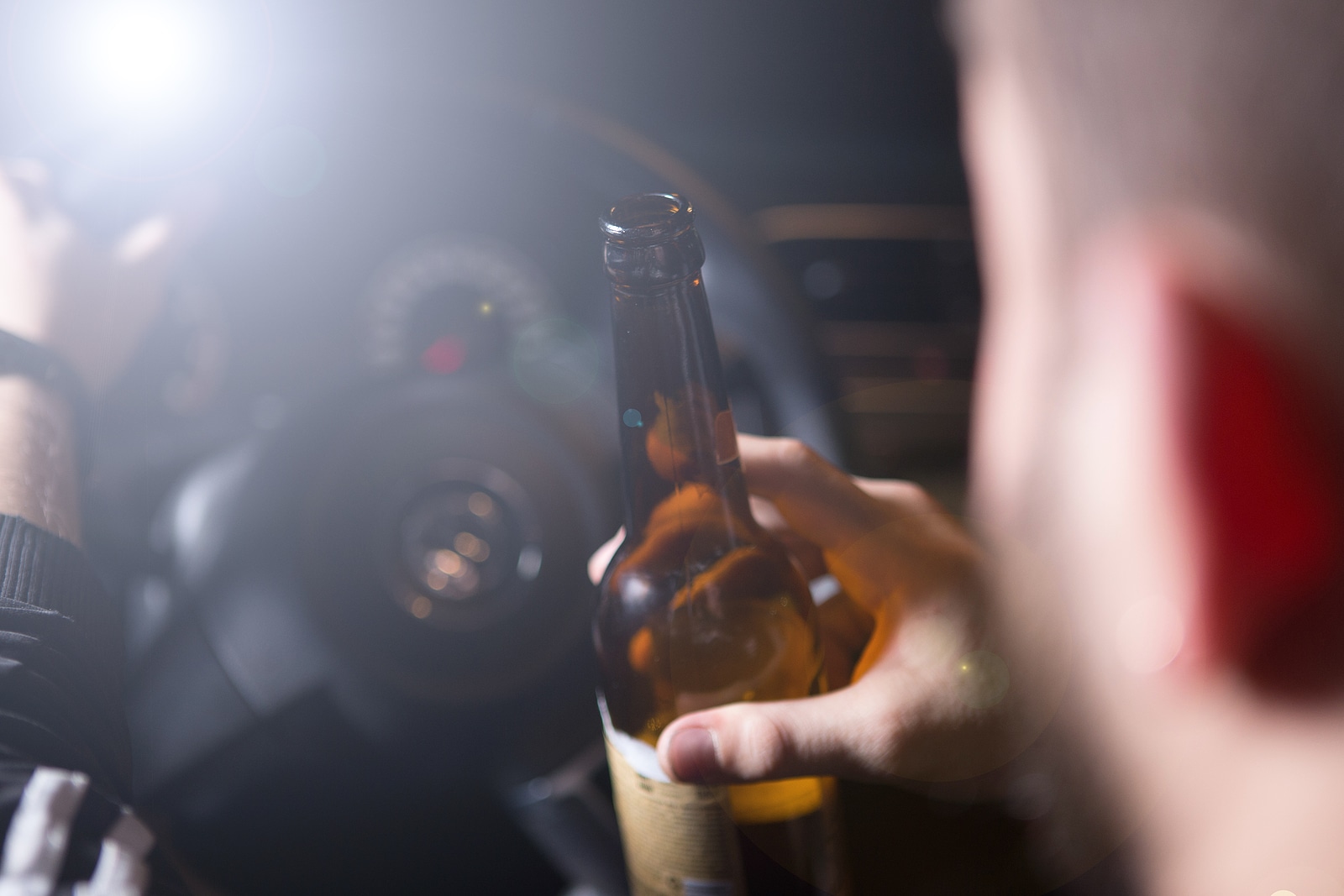The Impact of Chemical Tests and Evidence on DUI Cases
In DUI cases, chemical tests, including breath, blood, or urine tests, play a pivotal role in determining a driver’s blood alcohol concentration (BAC). However, the reliability and admissibility of these tests are subject to scrutiny, making understanding their complexities crucial for defense attorneys and defendants.
Field Sobriety Tests and Legal Implications
In addition to chemical tests, field sobriety tests (FSTs) are another element in DUI cases. FSTs are used by law enforcement to gauge a suspect’s level of impairment, including walking in a straight line, balancing on one leg, or following a moving object with the eyes. These are subjective and can be influenced by various factors, including weather conditions and an individual’s physical abilities. While FSTs are considered indicators of impairment, they are inherently subjective and prone to influence by numerous external factors. Defense attorneys often challenge the validity of FST results, highlighting factors that could have affected the defendant’s performance.
FSTs rely heavily on an officer’s observations and judgment, making them subjective. Weather conditions like rain, snow, or uneven terrain can significantly impact a person’s ability to perform these tasks. Moreover, an individual’s physical condition, age, weight, or pre-existing medical conditions can affect their balance and coordination, leading to misleading results.
Although law enforcement agencies often provide standardized guidelines for conducting FSTs, the execution of these tests can vary among officers. Differences in instructions, evaluation methods, or environmental conditions can introduce inconsistencies, raising concerns about the uniformity and fairness of the tests.
DUI defense attorneys meticulously analyze the circumstances under which FSTs were conducted. They emphasize factors like weather conditions and physical limitations that could have affected the defendant’s performance. Attorneys also question the officer’s training and adherence to standardized procedures, aiming to show that FSTs were conducted under less-than-ideal conditions. By pointing out the subjective nature of these tests and the various external factors that can influence performance, defense lawyers work to undermine the prosecution’s assertion that FSTs definitively prove impairment. This critical analysis creates doubt in the jury’s minds and often contributes to a more favorable outcome for the defendant in DUI cases.
Chemical Tests
When individuals are arrested for DUI, law enforcement officers often use chemical tests to measure the driver’s blood alcohol concentration (BAC) and gather evidence for the case. Understanding the types of chemical tests and the evidence they provide is crucial for building a strong DUI defense.
Breathalyzer Tests
Breathalyzer tests estimate a person’s Blood Alcohol Concentration (BAC) by analyzing their breath sample. This process is facilitated by sophisticated technology, either infrared spectroscopy or fuel cell technology, which measures the alcohol content in the exhaled breath. Despite their widespread use, these tests are not without challenges.
DUI defense attorneys routinely question the accuracy of breathalyzer results due to several influencing factors. Medical conditions, such as acid reflux or diabetes, can significantly impact breathalyzer readings, potentially leading to falsely elevated BAC levels. Improper calibration and maintenance of the device can compromise its accuracy, making it imperative for defense lawyers to scrutinize calibration records and testing procedures. Surprisingly, even certain diets or the use of breath fresheners containing alcohol can trigger inaccurate readings.
As a result, defense attorneys meticulously investigate these variables, aiming to uncover any factors that might have distorted the breathalyzer results. By challenging the reliability of these devices, DUI defense lawyers can effectively cast doubt on the prosecution’s evidence, creating essential avenues for building a strong defense strategy tailored to their client’s unique circumstances.
Blood Tests
Blood tests are used to determine a suspect’s Blood Alcohol Concentration (BAC). This method involves the collection of a blood sample, typically drawn from the suspect’s vein, which is then meticulously analyzed in a laboratory setting. Despite its reputation for accuracy, blood testing is not immune to challenges. DUI defense lawyers frequently scrutinize the procedures, particularly potential blood sample mishandling and contamination issues. Even minor errors in the sample’s collection, storage, or transportation can compromise its integrity and lead to inaccurate results.
Defense attorneys are known to meticulously examine the chain of custody, ensuring that the blood sample was handled correctly and documented at every stage, from collection to analysis. Additionally, they closely review the lab’s protocols and the qualifications of the personnel involved, looking for any discrepancies or deviations from established standards. By casting doubt on the validity of the test by questioning the integrity of the sample and the analysis process, DUI defense lawyers can create substantial doubt in the jurors’ minds, thereby strengthening their defense strategy and potentially leading to a more favorable outcome for their clients.
Urine Tests
Urine tests, commonly used in DUI cases, measure alcohol metabolites in the urine to estimate a person’s Blood Alcohol Concentration (BAC). However, these tests come with inherent challenges. Unlike blood or breath tests, urine tests are notably less reliable due to the variations in alcohol elimination rates among individuals.
Factors such as age, weight, metabolism, and overall health can significantly affect how alcohol is processed and excreted from the body, making it difficult to accurately determine a person’s BAC solely based on urine samples. Hydration levels also play a crucial role; a dehydrated individual might have a higher concentration of alcohol metabolites in their urine, potentially leading to misleading results. Additionally, the time elapsed since alcohol consumption is a critical variable. Alcohol metabolites can remain in the urine for a considerable period, making it challenging to establish a precise timeline of intoxication.
Given these complexities, DUI defense attorneys often challenge the reliability of urine tests in court, highlighting the inherent limitations and the numerous factors that can influence the results. By raising awareness about these challenges, defense lawyers create substantial doubt regarding the accuracy of urine tests, reinforcing their strategy to contest the prosecution’s evidence.
Reliability and Admissibility
Chemical tests are commonly used to establish a driver’s BAC, a key factor in DUI cases. However, the reliability of these tests can be influenced by various factors, including the calibration of testing equipment, the qualifications of the personnel administering the test, and external variables like the defendant’s medical condition.
Defense attorneys often challenge the reliability of these tests, questioning the accuracy of the results and the procedures followed during testing. The reliability and admissibility of chemical tests, including breath, blood, and urine tests, are pivotal factors in DUI cases and are often subjects of intense scrutiny in courtrooms. Establishing the accuracy and credibility of these tests is crucial for both the prosecution and the defense.
Reliability
Breathalyzer tests, while widely used, are susceptible to errors. Factors like calibration issues, environmental conditions, or medical conditions of the suspect can influence the results. DUI defense attorneys often challenge the reliability of breath tests by questioning the maintenance records and the training of the officers administering the test.
Blood tests are generally considered more accurate than breath tests. However, issues such as mishandling of samples, contamination, or errors in analysis can compromise their reliability. Defense lawyers meticulously examine the chain of custody, storage protocols, and lab procedures to pinpoint any discrepancies that might cast doubt on the accuracy of the results.
Urine tests are the least reliable among the three. As alcohol metabolites can remain in urine for an extended period, the test might not accurately reflect the suspect’s level of intoxication at the time of arrest. Variations in individual metabolism rates and hydration levels further challenge the reliability of urine tests.
Admissibility
For chemical test results to be admissible in court, several criteria must be met. The tests must be administered correctly by trained personnel following established protocols. Any deviation from the standard procedures can render the results inadmissible. The test equipment, especially breathalyzers, must be regularly calibrated and properly maintained. Records of calibration are crucial in establishing the reliability of the results. The proper handling of samples is essential. If gaps or uncertainties exist in the chain of custody, the defense can argue that the results might have been tampered with or contaminated, potentially rendering them inadmissible.
The prosecution often relies on expert witnesses, such as forensic analysts, to testify regarding the reliability of the tests. Defense attorneys may cross-examine these witnesses to challenge their expertise or the scientific validity of the methods used. A skilled defense attorney exploits any discrepancies in the administration or interpretation of chemical tests to question their reliability and admissibility. By doing so, they can create reasonable doubt in the minds of the jurors, which is often crucial in securing a favorable verdict for their clients.
Proper Handling and Calibration
Proper handling and calibration of testing equipment are paramount to the admissibility of chemical test results. Law enforcement agencies must adhere to strict protocols to ensure the accuracy of these tests. Any deviation from these procedures can raise doubts about the validity of the results. Defense attorneys scrutinize the maintenance records of testing devices, ensuring they were calibrated correctly and operated by trained personnel. Even minor errors in handling or calibration can cast doubt on the accuracy of the BAC measurement.
Role of Expert Witnesses
Expert witnesses often play a critical role in DUI cases involving chemical tests. These experts, often forensic scientists or chemists, possess specialized knowledge about the testing methods and equipment. They can testify on behalf of the defense, challenging the prosecution’s evidence. Expert witnesses may question the testing equipment’s reliability, challenge the personnel’s qualifications, or highlight external factors that could have influenced the test results, such as the defendant’s medical conditions.
Building a DUI Defense
In DUI cases, a strong defense often involves challenging the chemical test results, questioning the procedures followed by law enforcement officers, and exploring potential violations of the defendant’s rights. It’s crucial for individuals facing DUI charges to consult experienced DUI defense attorneys who understand the complexities of chemical tests and can build a robust defense tailored to the case’s specific circumstances.
Challenging Test Accuracy
DUI defense attorneys often question the accuracy and reliability of chemical tests. They may challenge the maintenance records, calibration procedures, or the qualifications of the personnel conducting the test.
Establishing Probable Cause
Police officers must have a valid reason to pull someone over for DUI suspicion. The entire case could be challenged if there was no probable cause for the traffic stop. DUI defense lawyers examine the circumstances leading to the arrest, including the officer’s observations and interactions with the driver, to determine if there were any violations of the suspect’s rights.
Carl Chapman, P.C. Provides Guidance and Strong Defense in DUI Cases
In the intricate landscape of DUI defense, understanding the nuances of chemical tests and evidence is indispensable. By questioning the reliability, proper handling, and calibration of testing equipment and leveraging the expertise of professionals, defense attorneys can construct robust strategies to challenge or support the results, ultimately shaping the outcome of DUI cases.
If you have been arrested for DUI, it is important to understand your rights and options for defense. A DUI conviction can have serious consequences, including license suspension, fines, jail time, and increased insurance rates. Carl Chapman, P.C. can help you build a strong defense and protect your rights.
Call 470-206-2169 to schedule a consultation.

 470-206-2169
470-206-2169





